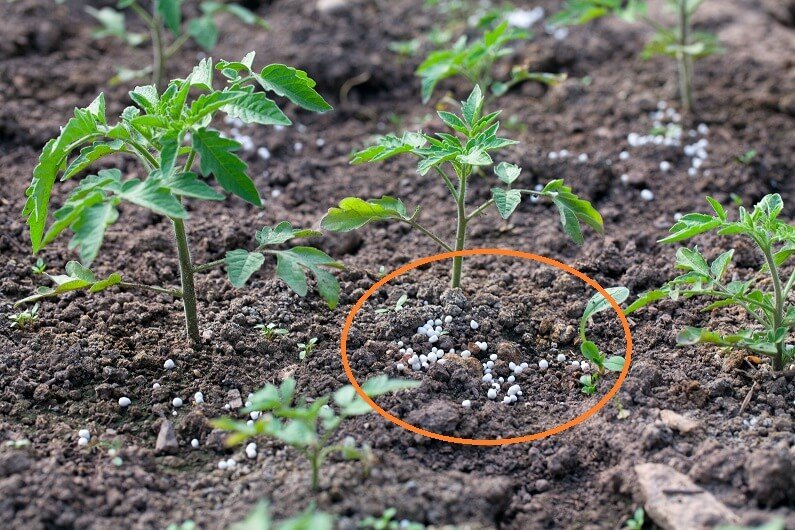What is inorganic fertilizer?
An inorganic fertilizer is one derived from mineral or chemical substances, such as phosphate rock, potash salts, and nitrate salts (nitrate of soda).
What is a chemical fertilizer?
A chemical fertilizer is one derived from chemically processed or manufactured materials, rather than from natural organic substances. The term is somewhat misleading in that organic fertilizers also may be treated with chemicals to increase their rate of availability. Many fertilizers contain both types of materials.
Are chemicals injurious to future plant growth? Not if they are used correctly. They do not, however, add humus to the soil.
Why don’t we use stone dust as a natural fertilizer, which it really is?
Pulverized granite (granite meal) is used as a source of potash in some areas. It contains about 5 to 10% potash, along with a wide assortment of other elements. It is applied at rates of 1/2 to 2 tons per acre, and lasts for a long time. On acid soils pulverized phosphate rock is usually a satisfactory source of phosphate when used liberally. Some rocks are nearly devoid of fertilizer elements.
When preparing the soil in the spring for a garden of either flowers or vegetables, is it necessary to apply a chemical for better results?
Usually additions of chemical fertilizers decidedly help production. They go to work at once, while organic fertilizers do not begin to feed plants until warm weather starts their decay.
What is the fertilizer value of calcium carbonate?
Calcium carbonate in itself is of no value as a fertilizer, since it is insoluble in water. It must be converted into the bicarbonate form, or some other soluble calcium salt, before calcium becomes available to the plant. It may also beneficially modify the structure of the soil.

